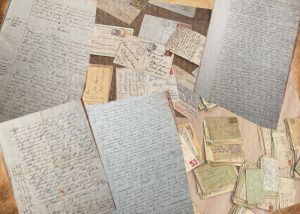About
Luxembourg’s multilingual background, encompassing Luxembourgish, German, and French, has shaped the country for centuries and offers a vibrant context for the study of letter writing. This project investigates the evolution of letter writing in Luxembourg from the Napoleonic era through to the post-Second World War period (1800s–1950), with a specific focus on the multilingual dynamics involving Luxembourgish. Despite its significance, Luxembourg has been largely absent from prior research on letters and their societal role. This gap presents a valuable opportunity to explore the linguistic development of Luxembourgish, particularly its transition from a primarily oral tradition to a written language, a shift that began with the emergence of Luxembourgish literature in the nineteenth century. This transformation is crucial to understanding the recognition and establishment of Luxembourgish as a national language. The project employs a multilayered methodological approach. It examines the historical evolution of letter writing and uses AI-powered tools such as Transkribus to automatically transcribe historical letters. A custom-trained Handwritten Text Recognition (HTR) model is being developed specifically for Luxembourgish, addressing methodological questions unique to Luxembourgish—a language lacking standardised writing until 1984. Ultimately, the project seeks to enrich our understanding of a previously neglected corpus of correspondence from the nineteenth and early twentieth centuries. By doing so, it offers new insights into language use, variation, and standardisation within a multilingual society, while also shedding light on how these linguistic practices were influenced by Luxembourg’s shifting geopolitical landscape and communication patterns.
Organisation and Partners
- Contemporary History of Luxembourg
- Luxembourg Centre for Contemporary and Digital History (C2DH)
Project team
- Machteld VENKEN, PI
- Frédéric CLAVERT, Project member
- Christelle AL HADDAD, Project member
- Nina Janz, Project member, NIOD Institute for War, Holocaust and Genocide Studies, Amsterdam Netherlands (external)
